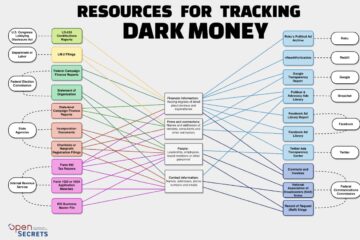We asked and you answered.
In a recent anonymous survey conducted by Society of Professional Journalists, Rio Grande Chapter and New Mexico Local News Fund, eight out of 10 journalists reported that their work takes a toll on their mental health. About half of those respondents said they’re looking for mental health resources.
Top stressors identified by survey participants included:
- Journalists are expected to do more at their jobs,
- Uncertainty about the future of journalism,
- Awareness that threats and attacks are being directed at journalists
- Feeling like they can’t report on important stories.
More than half of respondents also cited witnessing trauma in their reporting as a stressor.
In response to this significant need, SPJ Rio Grande and NMLNF are excited to present “Let’s Talk: Journalism and Mental Wellness,” a free six-week online program that aims to help journalists better manage their mental health. It’s open to journalists in New Mexico and West Texas.
During this series, we’ll seek to better understand the impact our jobs have on our lives and our well-being. We’ll also explore ways to cope and recover from past and current trauma.
The series will begin with five online discussions facilitated by Micah Pearson, CPSW and executive director of the National Alliance on Mental Illness, Southern New Mexico.
The sixth and final discussion will be hosted by the Dart Center, which provides journalists around the world with the resources necessary to meet this challenge, drawing on a global, interdisciplinary network of news professionals, mental health experts, educators and researchers.
This free program will be held every Monday at 12 noon on August 2, 9, 16, 23, 30. Each discussion is expected to last about an hour. The final presentation from the Dart Center is scheduled for 4 p.m., Monday, Sept. 13.
To register for the Dart Center presentation, go to the EventBrite page and the Zoom link will be sent to you.
Sign up for the series here to get the Zoom information for each week. Choose as many or as few sessions as you like. If you’re feeling adventurous, sign up for them all. There’s nothing to lose. They’re free!
As a bonus, journalists attending a majority of the sessions will be entered into a drawing for one of three $100 gift cards.
The first discussion will be an introductory meeting designed to get participants comfortable with the group and ideas surrounding mental health and mental health wellness. You have the option to remain anonymous during the sessions, but are otherwise encouraged to participate.
Discussions two through four will focus on topics proposed by the group during the first session. These can include post traumatic stress – either secondary or vicarious trauma – anxiety, depression, substance use and more. Come prepared to talk about your needs, that way our host can tailor the sessions to address those needs.
The final discussion will provide basic training on crisis management, coping skills and what resources are available in New Mexico.
Our host, Micah Pearson, is a former journalist who has undergone his own struggles with mental health. His journey has led him to help others as a peer support specialist in New Mexico. Micah is a member of the NAMI Board of Directors and first found NAMI by taking a peer-to-peer class. He’s also a member of the Local Behavioral Health Collaborative and is nationally recognized for his expertise in peer support, criminal justice, and public policy.
Previously, Micah was an entertainment critic for the Washington Post, USA Today, and others. He authored multiple books; the last of which was A Peek Inside: Illustrated Journeys in Life With Mental Illness. He was recognized with a New Mexico Behavioral Health Star Award for his work in Criminal Justice Reform and Peer Support.
The sixth and final discussion will be hosted by the Dart Center and will focus on “Trauma Awareness and Self Care for Journalists.” The discussion will take about 75 minutes, followed by a question and answer discussion.
The focus of this discussion will be on the impacts of covering trauma and tragedy on individual journalists and news teams. It will also address the effects of burnout and related stressors, and offer guidance and techniques for self-care and collegial support.
These discussions are meant to provide journalists with the vocabulary to talk about mental health in a meaningful way and give them a stepping stone to understanding their own experiences. While these conversations will offer support and camaraderie to journalists, they should not be viewed as formal mental health care.
If you would like to participate, but don’t feel comfortable sharing your identity, feel free to change your Zoom handle. Anonymous Wombat is always welcome! Please keep in mind, what participants disclose during these sessions should be treated as confidential and private. We want to create a space to let people open up and begin exploring their mental well being without reservation.
So grab some lunch, or a second (or third?) cup of coffee, and join us as we learn and begin to heal together.


